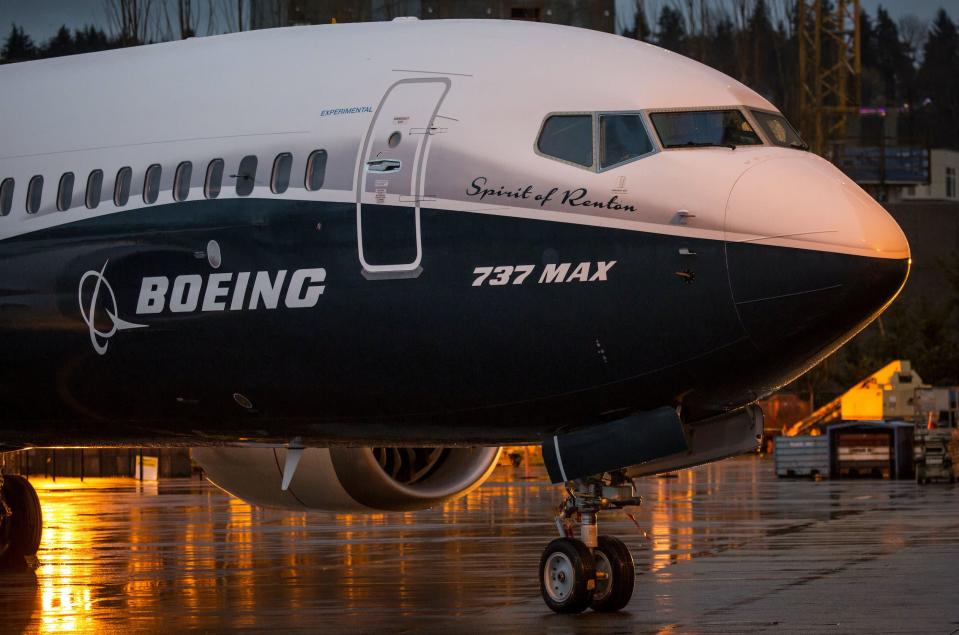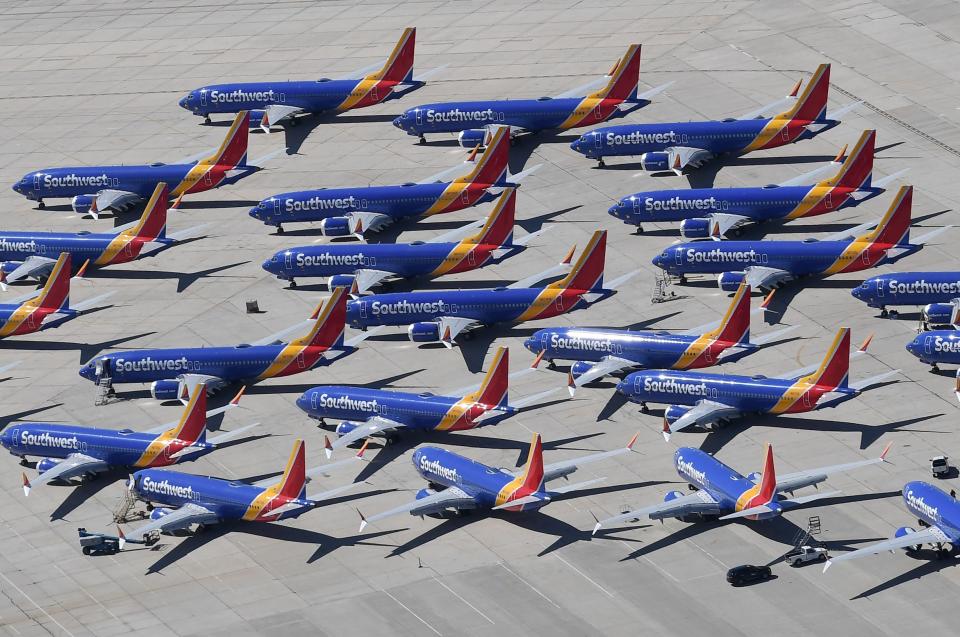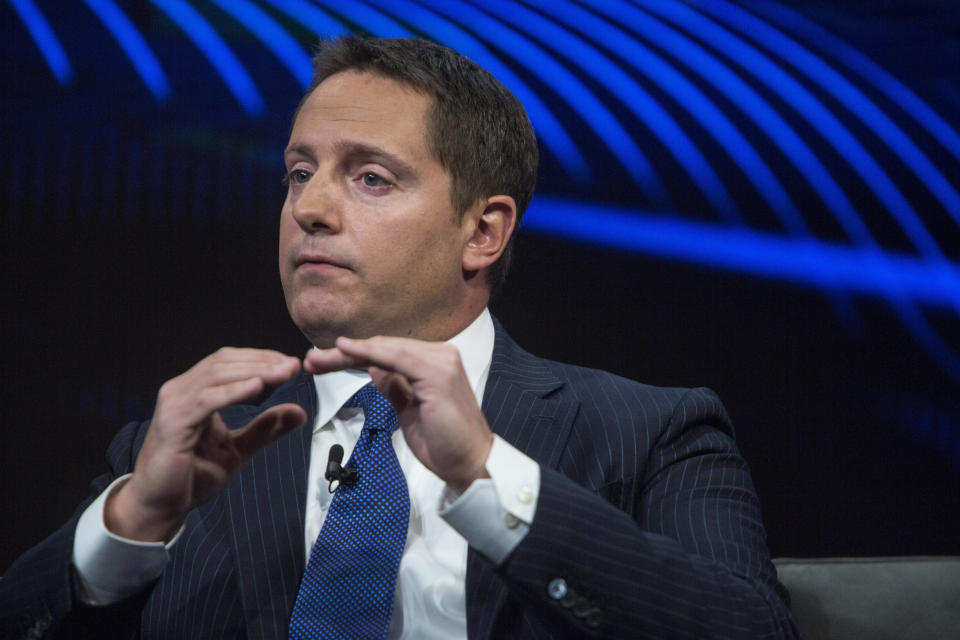Short seller Carson Block calls out Boeing for 'negligent homicide' in 737's woes
Boeing’s (BA) rush to bring a troubled 737 Max 8 to market given its flaws was “negligent homicide,” says prominent short seller Carson Block.
The aerospace giant has been the focus of intense pressure from regulators and investors in the wake of two high-profile crashes in Ethiopia and Indonesia. Countries have moved to ground Boeing’s flagship plane, while airlines have largely stopped booking orders.
Block, the founder of Muddy Waters and prominent bearish investor told Yahoo Finance’s The Final Round that while he has never owned or shorted Boeing, “from the beginning it was clear that there's this dysfunctional relationship between Boeing and the government in a way that they got the 737 Max certified.”
Block asserted that “there was this negligent homicide” related to the two fatal crashes, because of “what we know now about how this plane was developed in rush through development and [used] technology that was dated to a long time ago.”
He added: “It really calls into question what Boeing is focusing on, as well as the FAA.”

In a statement issued last week, Boeing insisted that the company is “driven by our enduring values, with a focus on safety, integrity and quality in all we do.”
The aviation giant has come under heavy pressure of late, facing multiple probes from government regulators after its 737 Max 8 crashed twice in the last several months. All Max 8 planes are currently grounded across the world, and deliveries and production cuts were announced on Friday after markets closed.
"We now know that the recent Lion Air Flight 610 and Ethiopian Airlines Flight 302 accidents were caused by a chain of events, with a common chain link being erroneous activation of the aircraft's MCAS function," Boeing said last week.
‘It’s not just Boeing that’s at fault’
For decades, aviation industry experts have called out an unusually intimate relationship between the aerospace industry and its regulators. The dynamic suggests potential slippage in safety standards.
How can Boeing with a straight face call the rushed development process of the Max “rigor[ous] and thorough”? pic.twitter.com/GxipUtTtZP
— Carson C Block (@Carson_C_Block) March 28, 2019
Jim Hall, the chairman of the National Transportation Safety Board (NTSB) from 1994 to 2001, previously told Yahoo Finance that Boeing and the U.S. government have “been cozy forever,” starting from his career in the industry in the 90s.
Block alluded to those concerns in his interview. He believes that pressure on Boeing to produce the fuel-efficient jets at a rapid pace to prevent defections to European rival Airbus led to shoddy workmanship and implementation.
“I would argue, it's not just Boeing that's at fault. I mean, you had the airlines that were basically saying to Boeing, look, you need to give us this plane,” said Block.
“And we don't want to have to buy simulators for it, we don't want to have to retrain our pilots for it, other than giving them I think, a 45 minute tutorial on an iPad,” he added.
“And so the airlines are pushing Boeing and Boeing is willingly being led into the situation in which they're taking a plane that dates from the 1960s. And they're trying to jam 21st century technology into it,” Block said.

American Airlines was one of the companies that was pushing Boeing.
And on Boeing’s part, being a listed company created a conflict of interest between profits and safety, added Block.
“It speaks to one of the problems that we have with the public company — how the public markets work here, and where they can actually misalign with really what these companies, their real duty, should be,” said Block.
“Such as in this case of Boeing keeping passengers safe…This was something that the chickens would not come home to roost for many years, and they did not, in fact, come home to roost, I think for over a decade,” he added.
Block’s crusade
Block’s expertise involves weeding out fraudulent Chinese companies.
He rose to fame after he published a negative report about a Toronto-listed Chinese company called Sino Forest, which ultimately delisted from the Toronto Stock Exchange.

In June last year he targeted another Chinese company, called China’s Tal Education Group, accusing it of being fraudulent. “TAL combines the old school China fraud playbook of simply penciling in more favorable numbers with the more sophisticated asset parking fraud of Enron," Block explained in a video.
But Block’s journey as a short seller hasn’t always been smooth sailing. “I’ve gotten death threats,” Block said in 2014. But “I often joke with my wife that it’s one of my key performance indicators.”
Aarthi is a writer for Yahoo Finance. Follow her on Twitter @aarthiswami.
Read more:
Boeing, amid crisis, is making a move that could hurt the economy
'Am I still wearing a Boeing hat?': Trump's acting defense secretary probed over favoritism
Boeing, 'cozy forever' with the U.S. government, under scrutiny after Max 8 crashes
Boeing and Trump face a clear conflict of interest, aviation experts say
Follow Yahoo Finance on Twitter, Facebook, Instagram, Flipboard, SmartNews, LinkedIn, YouTube, and reddit.
